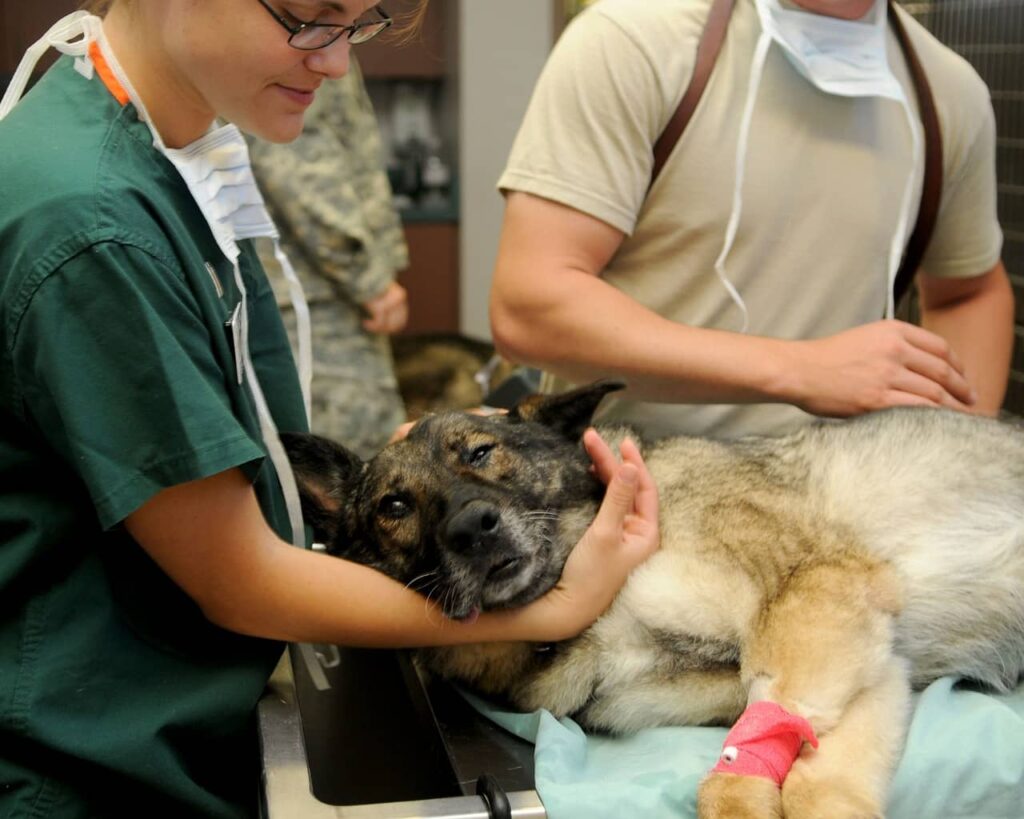How to Choose a Vet: Key Tips for Pet Owners

One of the most significant decisions you can make as a pet owner is choosing a vet for your furry friend. You must consider your pet’s health and well-being when selecting a veterinarian, regardless of whether you’re a first-time pet parent or simply looking to switch veterinarians. Your vet isn’t just a medical professional—they are a partner in your pet’s lifelong health journey, offering guidance on everything from vaccinations to behavior management.
This comprehensive guide covers everything you need to know about how to choose a vet. It includes practical advice on what to look for, essential questions to ask, and how to evaluate a vet’s clinic. We’ll also cover the emotional aspects of this decision and help you choose the most appropriate veterinary care for your beloved companion.
Why Choosing the Right Vet Matters
Veterinarians are more than just doctors who treat illnesses and injuries. In addition to helping your pet stay healthy, they also play a crucial role in their overall well-being. Choosing the right vet is not just about treating illness; it’s about having a healthcare partner who can guide you on nutrition, behavior, preventative care, and more. Here are several reasons why choosing the right vet is so essential:
-
Consistent, Quality Care: A dedicated vet means consistent care for your pet, which is key to preventing diseases and managing chronic conditions effectively.
-
Emergency Services: Life is unpredictable, and emergencies can happen at any time. A trusted vet who offers emergency services or knows where to refer you in an emergency provides peace of mind.
-
Long-Term Health: A knowledgeable vet will treat illnesses and provide preventive care to help your pet live a long, healthy life. Regular checkups can prevent minor issues from becoming major health problems.
-
Comfort for You and Your Pet: Choosing the right vet means choosing someone you trust, which creates a comfortable relationship. A calm, positive experience at the vet’s office ensures your pet doesn’t feel stressed or scared.

Key Factors to Consider When Choosing a Vet
Choosing a vet is about more than convenience or cost—it’s about finding the right fit for both you and your pet. There are several factors to consider before making a decision.
1. Location and accessibility
The clinic’s location is one of the most practical factors to consider when choosing a vet. You want a vet who is easily accessible in case of emergency and for regular appointments.
-
Proximity to Home: Ideally, the clinic should be within a short driving distance. A local vet ensures you can reach them quickly if your pet is in pain or distress.
-
After-Hours Availability: Does the clinic offer emergency care after hours? Some clinics offer extended hours or 24/7 emergency services, while others refer you to an emergency hospital. If your pet is prone to accidents or health problems, finding a vet with flexible hours can be a lifesaver.
2. Qualifications and experience
Just as you would select any healthcare provider, it’s worthwhile to consider vet qualifications. Your pet’s health is too a responsibility to leave to anyone not trained and experienced.
-
Educational Background: Vets must graduate from an accredited veterinary school and hold practice licenses. Many also pursue additional training in specific areas of veterinary medicine, such as dentistry, dermatology, and cardiology.
-
Experience with Your Pet’s Breed: If you have a specific breed, choosing a vet with experience with that breed’s unique health needs can be helpful. For example, some breeds are predisposed to certain conditions, like hip dysplasia in larger dogs. A vet familiar with these conditions can provide better care.
-
Pro Tip: Don’t hesitate to ask about a vet’s experience treating pets similar to yours, whether it’s a particular breed, age group, or health condition.
3. Services Offered
Veterinary clinics differ in their range of services, so it’s crucial to choose a vet whose services align with your pet’s needs.
-
Routine Care: Every pet must have basic checkups, vaccinations, and annual exams. Choose a clinic that offers these services regularly.
-
Specialized Care: Some clinics may offer specialized services, such as dental care, diagnostic imaging (e.g., X-rays, ultrasounds), or surgery. This could be a significant factor if your pet has a chronic health condition or special medical needs.
-
Preventive Care Programs: Some clinics offer wellness programs that cover regular exams, vaccinations, and screenings at a discounted rate. This can be a very effective way to stay on top of your pet’s health.
-
Alternative Therapies: Some vets offer holistic or alternative therapies like acupuncture, chiropractic care, or homeopathic remedies. If you’re interested in these options, consider choosing a vet that integrates them into their practice.
4. Reputation and Reviews
In today’s digital world, finding reviews and feedback on vets in your area is easier than ever. Online reviews can give you an idea of what to expect, but don’t rely solely on them. It’s essential to weigh all the information before making a decision.
-
Word-of-mouth: Ask fellow pet owners for recommendations. A vet trusted by friends, family, or fellow pet owners is often a positive sign.
-
Online Reviews: Websites like Google Reviews, Yelp, or Facebook can provide insights into others’ experiences. While one dissatisfaction review shouldn’t turn you off entirely, consistently poor reviews or complaints about care quality or staff behavior should raise red flags.
-
Pro Tip: Pay attention to how the clinic responds to negative reviews. A clinic that addresses concerns professionally and promptly demonstrates effective customer service.
5. Clinic Atmosphere and Staff
The clinic’s overall atmosphere and staff demeanor can make a big difference to your and your pet’s experience.
-
Cleanliness: A clean, well-maintained clinic is essential to your pet’s safety. Observe the waiting room, examination rooms, and the general condition of the facility. A hygienic environment minimizes infection risk.
-
Friendly and Compassionate Staff: How staff members interact with your pet speaks volumes about their attitude and professionalism. Choose a vet clinic with friendly, empathetic, and professional.
-
Handling of Pets: A vet’s ability to handle your pet calmly and gently is imperative, especially if your pet is anxious about visits. Pets pick up on human emotions, so having a compassionate, patient vet and staff can make visits less stressful.

Questions to Ask When You Visit
When you visit a vet for the first time, it’s an excellent idea to come prepared with questions. This will give you a clearer picture of the clinic’s services, policies, and overall fit for your pet’s needs.
-
What is your approach to preventive care?
-
Ask how the vet approaches vaccinations, parasite control, and other preventative measures.
-
-
How do you handle emergency?
-
Find out if the clinic offers emergency services or refers clients to a 24-hour animal hospital.
-
-
What are your treatment protocols for chronic conditions?
-
If your pet has specific health concerns, ask about the vet’s experience managing chronic illnesses or specialized treatments.
-
-
Do you have experience with my pet’s breed or species?
-
Breeds or species often have specific medical needs. Ensure the vet is experienced with your dog’s breed or type of animal.
-
-
What should I expect during my pet’s checkup?
-
Ask what is typically included in a checkup, such as blood work, physical exams, and dental checks.
-
-
What payment options do you offer?
-
If your pet requires expensive treatments, ask about payment plans or whether the clinic works with pet insurance providers.
-
Trust your instincts.
While facts and qualifications are of importance, your gut feelings about a vet also matter. If something didn’t feel right during your visit — perhaps the staff was dismissive, or the clinic didn’t seem as clean as you’d hoped — trust your instincts. Your pet’s health is too critical to settle for anything less than a vet you feel comfortable with.

Conclusion
Choosing the right vet is one of the most significant decisions for your pet. You can ensure that your pet gets the best care by considering factors like location, services, qualifications, and the clinic’s atmosphere. Remember to ask the right questions, trust your instincts, and switch vets if something doesn’t feel appropriate.
Ultimately, having a positive relationship with your vet will improve your pet’s health and give you peace of mind knowing your pet is in expert hands. Finding the right vet is an investment in your pet’s health, happiness, and longevity.
FAQs
1. How often should I take my pet to the Choose a Vet?
Visit frequency depends on your pet’s age, breed, and health status. Generally, most pets should see a vet at least once a year for a checkup. Older pets or pets with medical conditions may need more frequent visits.
2. Can I change vets if I’m unsatisfied with my current one?
Yes, you can switch veterinarians at any time. Feeling comfortable and confident in your vet’s care is essential, so don’t hesitate to look for an alternative one if you’re unhappy with your current provider.
3. What should I do if my pet has an emergency?
If your pet is experiencing a medical emergency, contact your vet immediately or visit the nearest emergency animal hospital. Many vets offer after-hours emergency care, so check with your clinic beforehand.
4. Do all vets offer the same services?
No, the services offered vary significantly between clinics. Some may focus on general care, while others offer specialized services such as surgery, dental care, or holistic therapies.
5. Should I consider pet insurance when choosing a vet?
Pet insurance can help offset veterinary care costs, especially for unexpected emergency or chronic conditions. Ask your vet if they accept pet insurance and consider whether it’s right for your

















Recent Comments